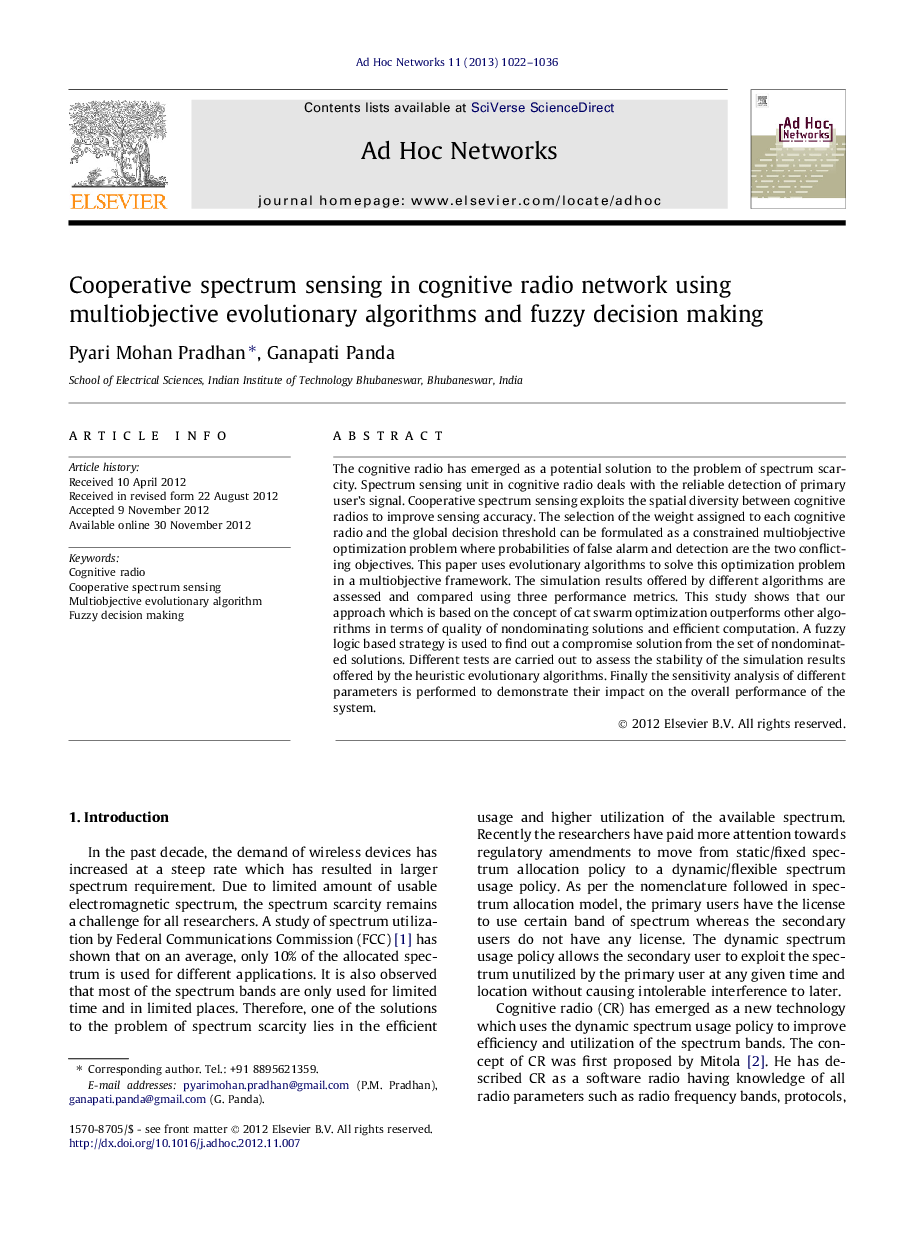| Article ID | Journal | Published Year | Pages | File Type |
|---|---|---|---|---|
| 10338048 | Ad Hoc Networks | 2013 | 15 Pages |
Abstract
The cognitive radio has emerged as a potential solution to the problem of spectrum scarcity. Spectrum sensing unit in cognitive radio deals with the reliable detection of primary user's signal. Cooperative spectrum sensing exploits the spatial diversity between cognitive radios to improve sensing accuracy. The selection of the weight assigned to each cognitive radio and the global decision threshold can be formulated as a constrained multiobjective optimization problem where probabilities of false alarm and detection are the two conflicting objectives. This paper uses evolutionary algorithms to solve this optimization problem in a multiobjective framework. The simulation results offered by different algorithms are assessed and compared using three performance metrics. This study shows that our approach which is based on the concept of cat swarm optimization outperforms other algorithms in terms of quality of nondominating solutions and efficient computation. A fuzzy logic based strategy is used to find out a compromise solution from the set of nondominated solutions. Different tests are carried out to assess the stability of the simulation results offered by the heuristic evolutionary algorithms. Finally the sensitivity analysis of different parameters is performed to demonstrate their impact on the overall performance of the system.
Keywords
Related Topics
Physical Sciences and Engineering
Computer Science
Computer Networks and Communications
Authors
Pyari Mohan Pradhan, Ganapati Panda,
